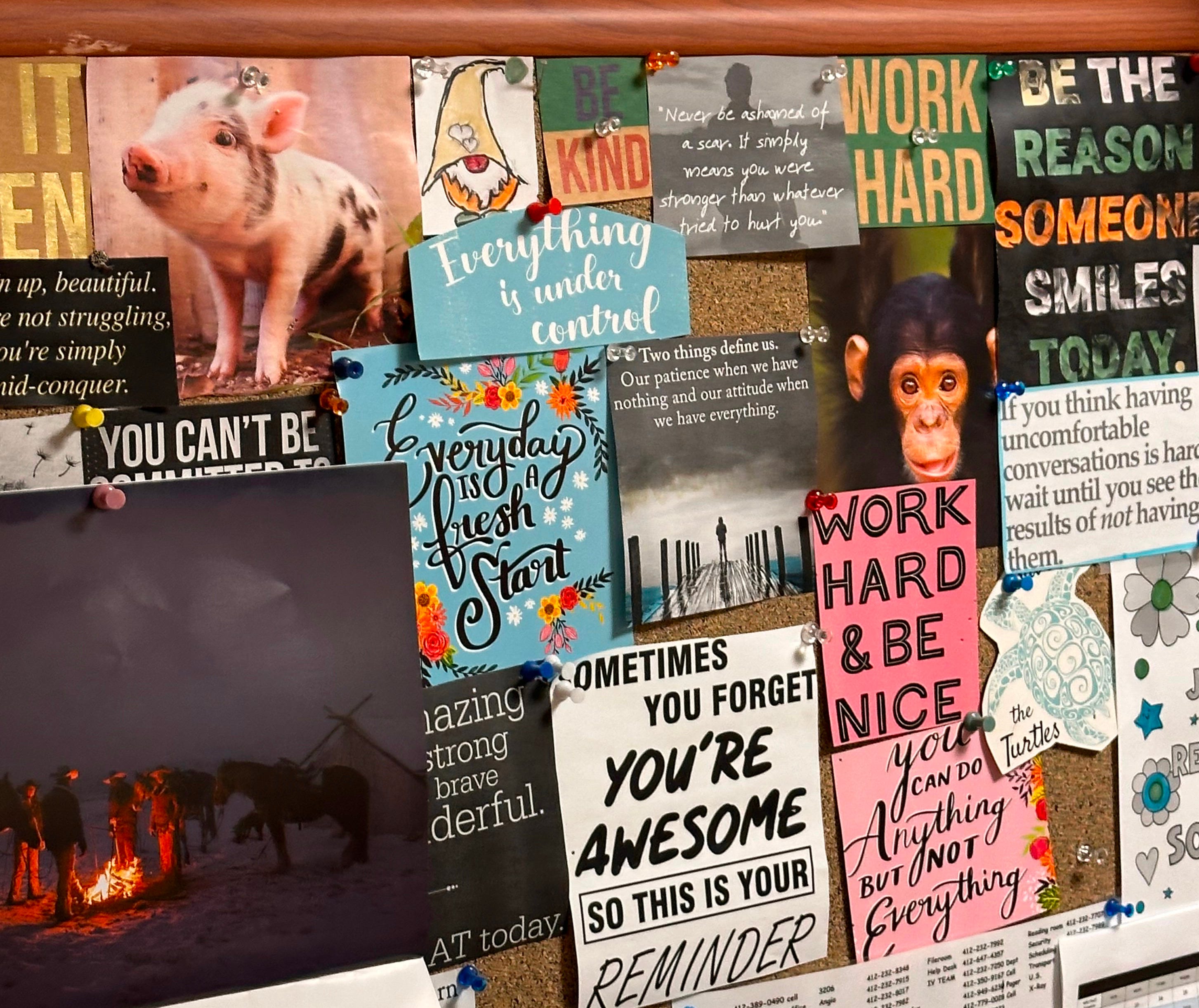What’s Next Skill Two: Self-Understanding
I recently completed providing feedback to a group of employees who completed a three hundred sixty-degree degrees (360) evaluation at their organization. I think these surveys are one of the most effective tools for helping people understand how to improve their work performance.
360-degree evaluations involve asking questions to an employee’s boss, peers, and direct reports, sometimes in a structured formal survey and sometimes in more intimate one-on-one meetings.

I’ve conducted hundreds of them, and a few things stand out about understanding ourselves so we can decide “What’s Next.”
An interesting side note is that when I took my last corporate position at the University of Pittsburgh Medical Center, I needed to prepare for navigating a corporate entity with tens of thousands of employees. I went to my boss and asked if I could get a 360-degree review, and she told me that I was expected to figure these things out myself and that if I couldn’t, I shouldn’t be there. I didn’t, and five years later, I was part of a reduction of force (RIF). If only I’d gotten that 360, I asked for.
Two things stand out to me about how people react to the feedback from their reviews
- “I want to know the bad stuff first”: When clients receive their reports, they often go to the “comment” section and look for the negative remarks. I always highlight the positive remarks first because I want people to see where they are performing the best and where others see them as successful. I do this for several reasons:
- Limit their negativity bias.
- Get them not to start thinking…”I know who said that.”
- Help shift the mindset to focusing on areas where they are strongest.
- “Is that really me?” There are three areas I want my clients to recognize
- Hidden strengths are skills that they don’t recognize they have.
- Blind Spots—areas of capabilities they think they have but don’t. I’m working with someone who thinks he is a great listener, but his 360 comments are that he does not listen.
- Overused strengths—When we are good at something, we overuse it. Empathy is my strength (I’m a psychologist), but I must guard against being too understanding and not holding people to their commitments and expectations.
The organization these folks work with understands the importance of devoting time and energy to their team member’s professional development, and it is part of their work culture, which makes it so much easier to coach and advise these leaders.
Self-understanding is one of the most critical skills when considering “What’s Next.” Looking outward for guidance is easy, but growth happens when we first look inward. Tools like 360-degree evaluations provide external feedback, but the real power comes from how we process and integrate that feedback into our understanding of ourselves. Coaching and advising are essential to this journey, as we can’t see the world objectively with our own eyes.
When we recognize our strengths, acknowledge our blind spots, and identify where we might be overcompensating, we craft a clearer picture of who we are and how we operate. This level of self-awareness is foundational for deciding the next steps in our personal or professional journey.
As you reflect on what’s next for you, consider how well you understand your abilities, motivations, and areas for growth. With that self-awareness, you’ll have a much more straightforward path forward.
What’s one insight about yourself that you know is true but haven’t fully recognized or accepted? If you are not sure, ask someone.
You’re Not Going to Like This…
I had a doctor’s appointment yesterday, and as I walked in, I noticed a bulletin board behind the receptionist’s desk. She greeted me with a bag of potato chips in hand, so I laughed and asked, “Is that your lunch?”
It was. She said she didn’t have time for a proper meal, so the chips would have to do. I pointed to the bulletin board and told her she was excellent but deserved more than a quick snack. She chuckled and gestured to a sign that read, “Everything is under control.” “It’s not,” she said.

Here’s the part you might not like: this woman was severely overweight, working in a healthcare office, and eating junk food because she couldn’t spare time for a break. It’s not just about her size; it’s about a lifestyle leading to poor health, higher personal costs, and a longer-term burden on our healthcare system.
We’ve made strides toward healthier lifestyles—more of us exercise, eat better and listen to our doctors. But let’s be honest: healthcare disparities are glaring. Many people, especially those in low-income or minority communities, don’t have the access to healthy food, wellness resources, or proper medical care that they desperately need. And it’s getting worse.
COVID-19 exposed the gaps, and while there’s been a push for more mental health and wellness initiatives, we’re still missing the mark on an individual level. Employers and leaders must ensure their teams have the time and resources to care for themselves.
Before I left the office, I half-jokingly offered to cover the desk for a few minutes so she could grab something healthier. She laughed, said, “Maybe tomorrow,” and returned to work. But we both know tomorrow rarely comes unless someone makes it a priority.
軽度のひきこもり (What is This?)
I’ve created a new program based on an article I read in the Wall Street Journal regarding how “America’s Young Men are Falling Behind Even Further.” The article describes
the growing issue of young American men feeling aimless, isolated, and struggling with purpose, often living with their parents and having difficulties finding direction in their careers. While women increasingly enter the workforce, men face more challenges, including lower college attendance and higher rates of unemployment or underemployment. This trend has been exacerbated by the pandemic and societal shifts, leading to a sense of purposelessness among many young men.
It reminded me of the Japanese term “hikikomori,” which refers to severe social withdrawal, where individuals live with their parents, stay isolated, and avoid school or work. While the young men in the WSJ article aren’t fully hikikomori, they exhibit “light hikikomori” tendencies, or kendo no hikikomori.
My new program, called “Jump Start,” is a four-month program designed to help these young men begin the steps to reengage and find meaningfulness in their lives, whether it be career, relationships, or personal meaning. We will:
- Get a handle on what is happening, why, and what would be a great outcome.
- Do some assessing of capabilities for success.
- Build a plan of action and use different approaches to provide a foundation for change.
- Match up our activities and actions to drive towards the desired outcome.
- Build a sustainability plan so that I can get out of the picture while providing the skills to keep the momentum going.

This program will cost $4000 and include regular Zoon meetings, access to me via text or email for questions, assessments we may use, and resources that will provide ongoing support. I will also remain available to discuss follow-up items via email for two months after we finish.
I bet you know someone like this—a son, nephew, or friend who could benefit from having some focus time to get their life in order. If so, I’d love to get them the help they need so they can rediscover their purpose and navigate a meaningful life.
Please reach out to me by leaving a comment below,”jump-start,” and I’ll get back to you or send me a message
I hope you are enjoying my new Substack posts. Keep checking them out and please leave your comments below.
Have a great week and I’ll see you soon.
Richard
